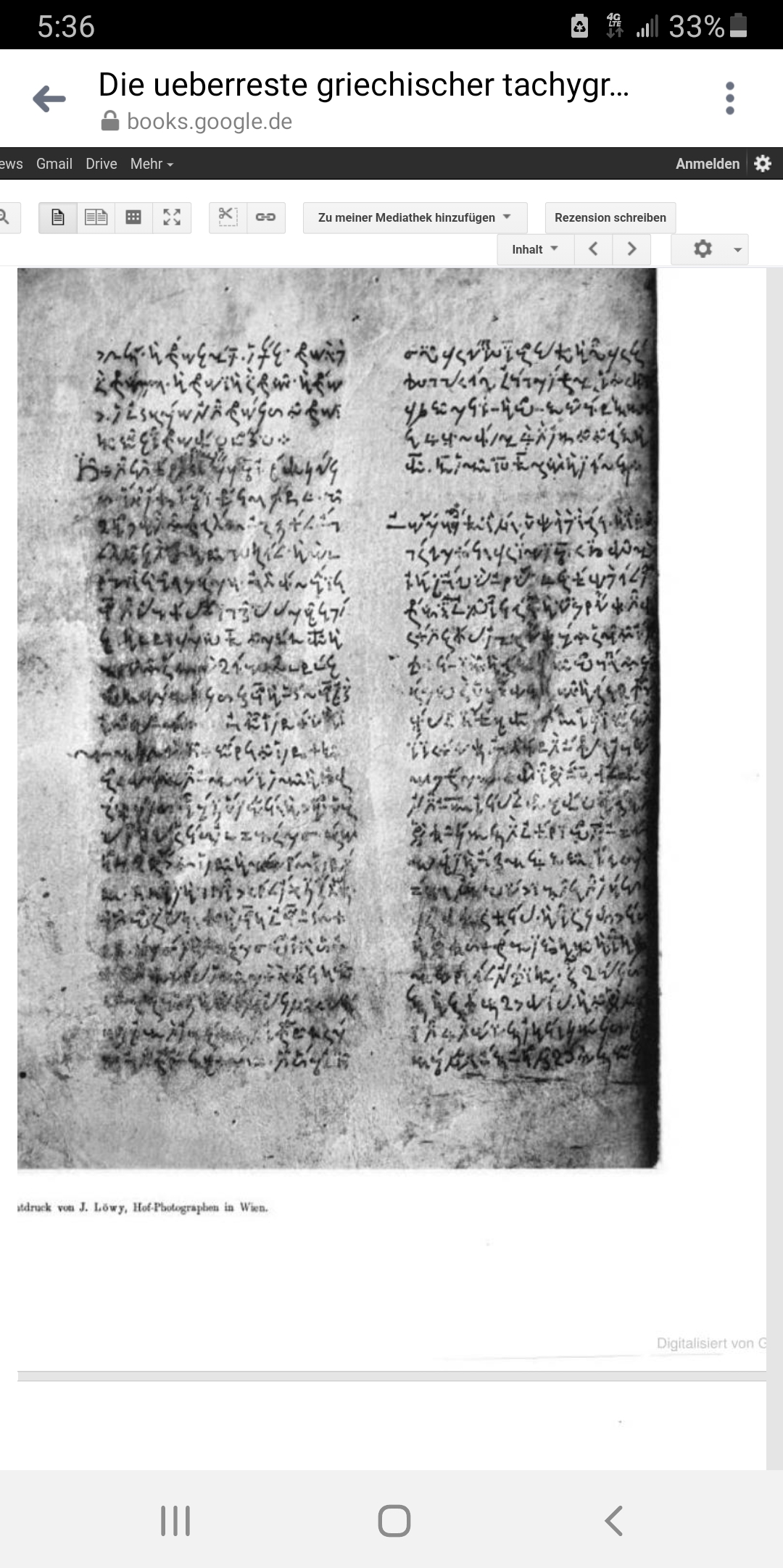
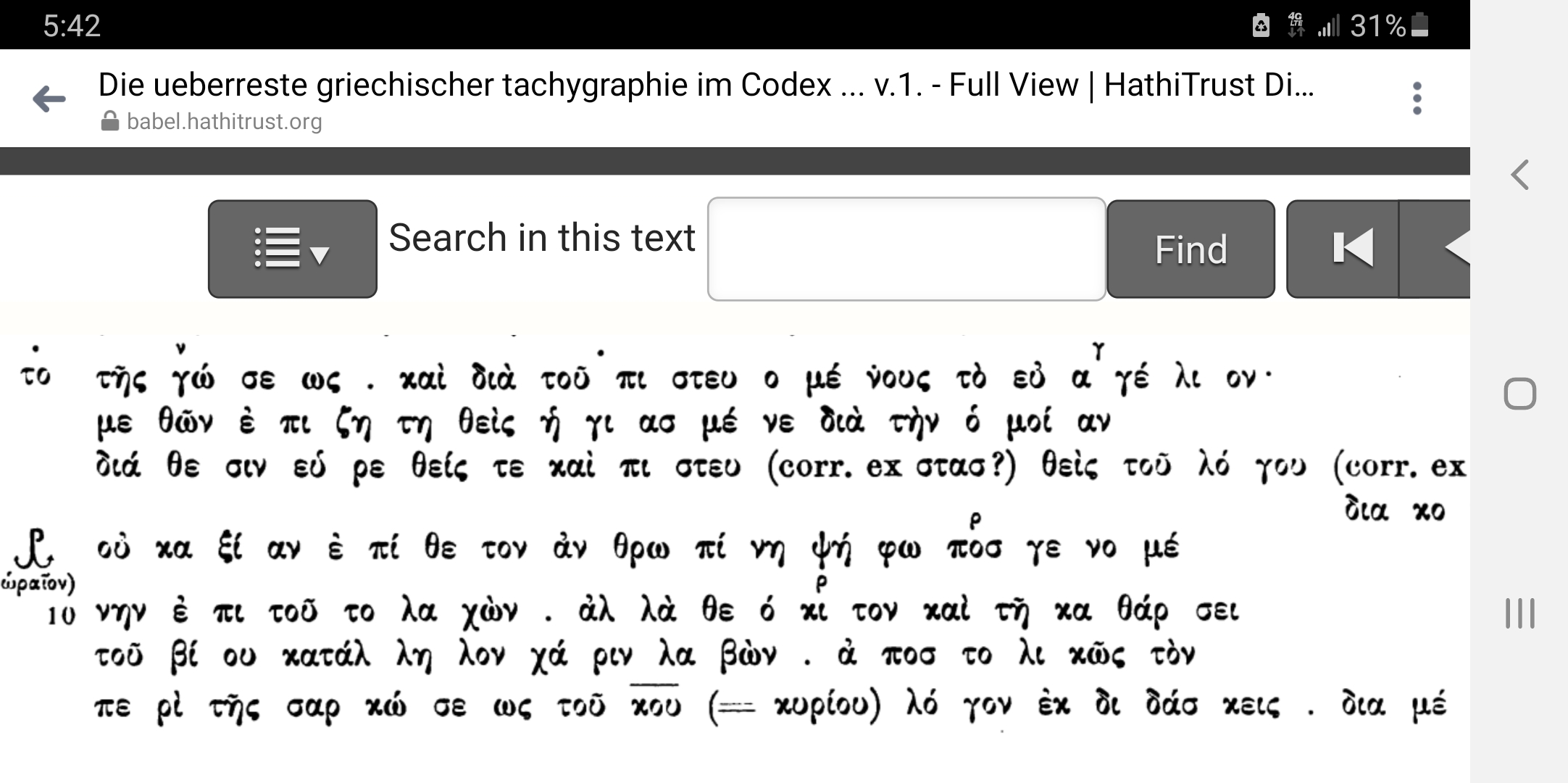
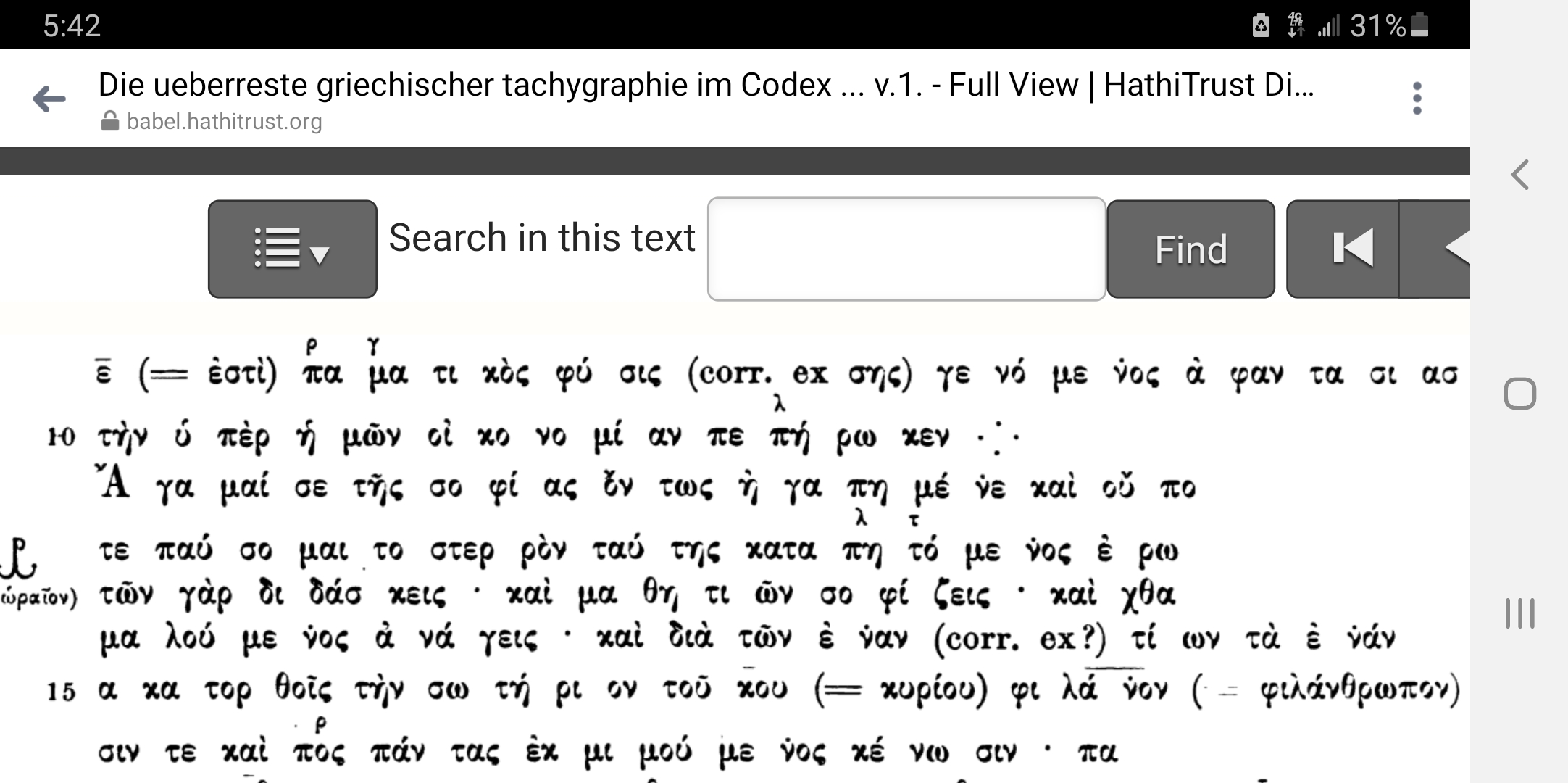
Mystery will be solved soon. There's a Greek shorthand text with to Theodore on it somewhere.



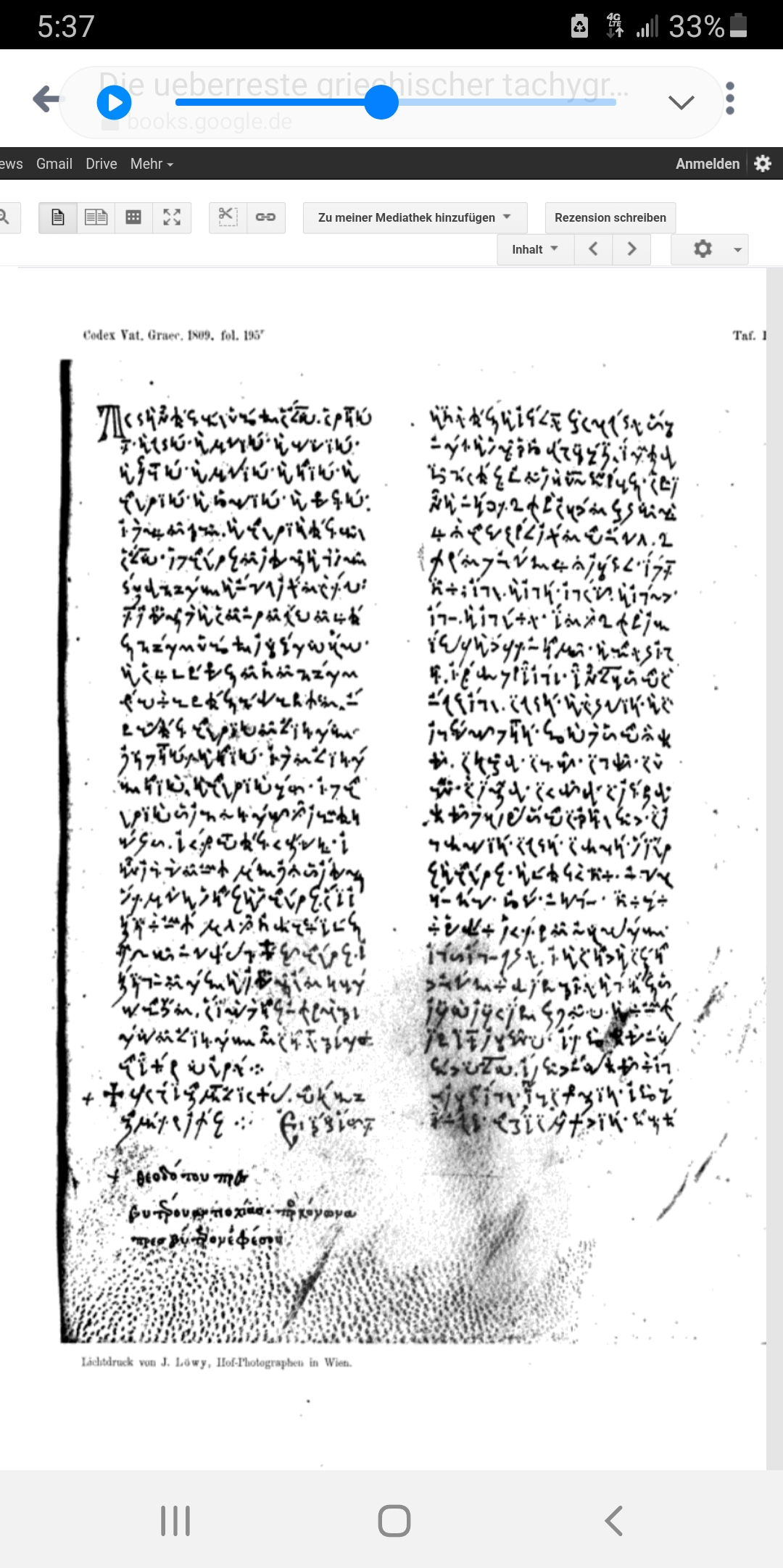

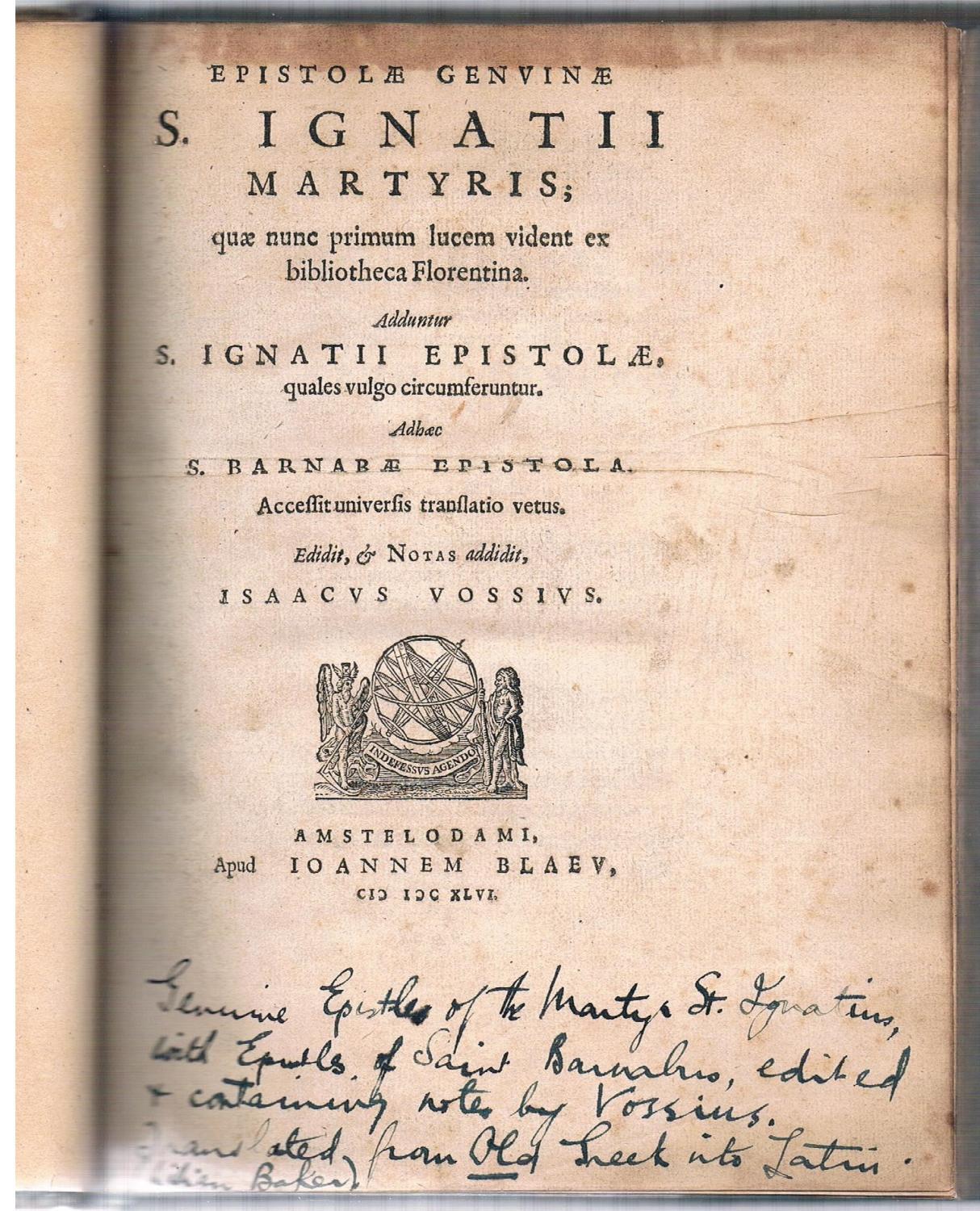
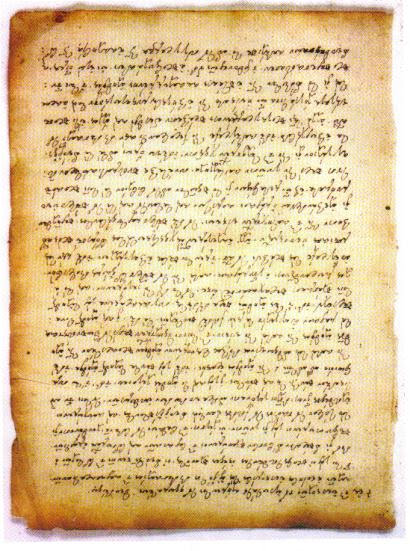


Bloomfield is citing Christian Gottlieb Kühnöl hereFourthly , it may easily be shown how the readings θεού , θεού και Κυρίου , and Χριστού , OeoŨ might creep in , since the words Ocòs , Kúplos , and Χριστός , were written θΟΣ , ΚΟΣ , ΧΟΣ , ΘΟΥ , ΧΟΥ , and then Κυρίου might accidentally pass into θεού , or be changed into it by the orthodox . The reading XplotoŨ seems an interpretation of Κυρίου.
So there appears to be a period where these forms were used θΟΣ , ΚΟΣ , ΧΟΣ , ΘΟΥ , ΧΟΥ and a confusion arose explaining the variant in Acts 20.Facile ostendi potest , quomodo lectiones Θεού , Θεού και Κυρίου et Χριστού extiterint . Lectio Θεού irrepere potuit , cum voces Θεός , Κύριος , Χριστός per compendium scriberentur ΘΟΣ , ΚΟΣ , ΧΟΣ , ΘΟΥ , ΚΟΥ , XΟΥ , potuit ab aliis Kupiov mutari in usitatius ab orthodoxis in aliis libris reponi Θεού. https://books.google.com/books?id=yCVwR ... el&f=false
The facts are that Kühnöl wrote before the Greek shorthand script was deciphered by Gitlbauer. So he can't be thinking about that text. Moreover his arguments suppose that Origen had the right reading of Paul which was later 'falsified' according to the confusion over θΟΣ, ΚΟΣ, ΧΟΣ. But why is it so important to have THESE PARTICULAR FORMS rather than θΣ, ΚΣ, ΧΣ? Why does he suppose an error arose because of the addition of the omicron? I am not following the argument at all.The Vatican MS . , indeed , exhibits Θεού , but that is manifestly an alteration from the genuine κυρίου ; since in the reading του αίματος του ιδίου infra , this MS . agrees with some others , with which it also does on ...
A Chi di Competenza,
Mi chiamo XXXXXXXXXXXX e Vi sto scrivendo dagli Stati Uniti per conto del Sig. Stephan Huller: sono io a scriverVi, poiche' il Sig. Huller non parla Italiano.
Il Sig. Huller sta scrivendo un documento accademico su un manoscritto che crede sia stato scritto da un autore greco in Italia nel diciasettesimo secolo, e vorrebbe cortesemente chiederVi alcune informazioni, poiche' sta cercando di risalire alla calligrafia di questo autore, per arrivare a capire chi sia.
Il Sig. Huller, sapendo che avete dei manoscritti greci nella vostra biblioteca, vorrebbe sapere quanti di questi sono del dicassettesimo o diciottesimo secolo. Vorrebbe sapere se e' possibile avere accesso a tali manoscritti (greci) o anche a semplici note scritte a mano (per esempio su un foglio bianco di un libro......), se doveste averne.
Inoltre vorrebbe sapere se gli potete indcare altre biblitoeche di monasteri in Italia, che possano evere documenti simili scritti a mano, che lui possa contattare.
Se riuscisse a trovare questi documenti, lo aiuterebbero moltissimo a risalire alla calligrafia dell'autore del manoscritto che sta studiando - e per cui all'autore stesso.
Vi ringraziamo in anticipo e vi mandiamo i nostri piu' cordiali saluti.
Do you ever notice a pattern that I'm always wrong? My scholarly investigations are a lot like my marriage. Although they might be more like my single life: always hopeful but ultimately getting nowhere.in the 17th century Italo-Greeks were mostly extinguished, culturally speaking, and the few remaining in rural southern Italy were mostly illiterate. Moreover, the hand doesn't exhibit any of the typical signs of a western person trying to write in Greek: whoever copied this text used the greek alphabet with the confidence of a native speaker.